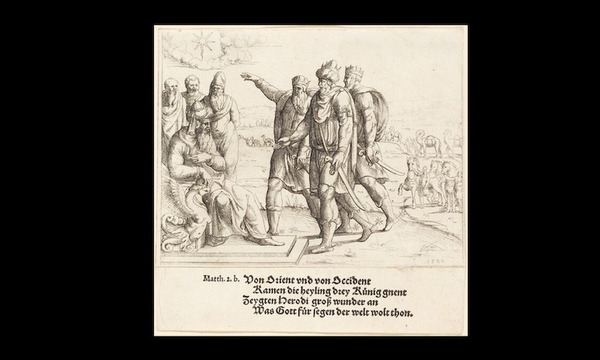LESSONS ON LEADERSHIP FROM THE PASTORAL EPISTLES, PT. 3:
“CHOOSING THE RIGHT LEADERS”
Choosing the right leaders helps determine good leadership. This is true for every organization that requires leadership. Even the business world understands this important axiom. Jim Collins for example in his book Good to Great uses the analogy of getting the “right people on the bus” before any kind of leadership could move, develop, or flourish. This is not only a proven principle from experience but also something that the Pastoral Epistles certainly emphasizes. This is why following the prescription of what makes a good leader according to the Word of God is so crucial for the church. Without referring to the qualities mentioned in the Scripture, potentially wrong criteria could be imposed in choosing leaders for the church and this would be tragic!
What are the qualities that should be observed and adhered to that would make a person a good and godly leader? Before looking at some of these key principles in the Pastoral Epistles, it would be helpful to refine this thought by looking at some of the wrong criteria before defining what are good ones. Often times, leadership may be chosen based on a person’s personality, tenure, social status, or abilities. Although these may be helpful in leadership effectiveness later down the line, they should not be the standards by which qualifies them to become a leader in the church. Instead, it should be about the person’s character rather than their ability or status. In other words, it is whom the person is that will determine how they lead. If the person demonstrates poor character, then they will certainly make poor choices. The reason is simply because that’s who they are at their core being. To do otherwise would be out of character. Simple truth: bad character leads to bad leaders who make bad decisions.
This wrong emphasis of leadership criteria can certainly lead to all kinds of trouble in the church. For example, if a person shows great talent in preaching or worship leading in front of the congregation but at the same time demonstrates a poor or ungodly relationship with people around them in private, this negates their effectiveness and witness. Never choose a person based solely on their talent or ability. It will be a matter of time before their true colors show. This is why the Pastoral Epistles emphasizes character above any ability in choosing leaders. So how should a board or group proceed in selecting godly leaders for the church?
There are many principles found in the Pastoral Epistles concerning the selection and choosing of leaders. This entry will only focus on three of these principles. The first is found in 1 Timothy 5:22, “Do not lay hands upon anyone too hastily and thereby share responsibility for the sins of others; keep yourself free from sin.” In this passage, Paul is advising Timothy to not be too hasty or quick in selecting a person to be an elder in the church. Although the meaning is specific to elders in a church, the principle can certainly apply generally to all leaders. The idea behind this is that one should explore the background and qualifications of the person before selecting him as a potential candidate for this important position. This person should be seasoned in his character and virtue. And as a result, it should be evident to all that this person is not only qualified but also respectable as a person because of his character.
This idea is further supported by another criterion found in 1 Timothy 3:10, “These men must also first be tested; then let them serve as deacons if they are beyond reproach.” This passage refers to the deacons or “servants” of the church. Even in this position, they are to be observed in their character and service before they could lead in an official manner. This affirms yet another important principle that Jesus mentioned earlier in the Gospels “faithful with a few things, I will put you in charged of many things” (Matt. 25:21-23). Again, this process seems to be a fairly long one in which the person is observed for an extended period of time. And through this period, he becomes proven because he shows integrity and consistency in how he is as a leader.
The main criterion and thrust on character quality for a leader come from 1 Timothy 3:1-7 and Titus 1:4-6. In both lists, we see a common phrase that is repeated for emphatic purposes. The emphasis is found in the statement in both passages that the leader must be “above reproach.” This statement probably functions as an umbrella or title to the list of virtues that follows. In other words, all of the characteristics point to the larger heading of being “above reproach.” These qualities include being the husband of one wife, temperate, prudent, respectable, hospitable, able to teach, not addicted to wine or pugnacious, gentle, peaceable, free from the love of money, one who manages his household well, not a new convert, and having a good reputation with people inside and outside of the church. Note that many of these qualities focus on a person’s personal life. This certainly includes how a leader relates and conducts himself with his family. Perhaps this emphasis is given because the family can see the leader and how he lives 24 hours a day. There can be no hiding as to how a person really is in his character.
One of the big takeaways in this whole leadership selection process is that it should take a thoughtful and careful time to do as a group looks for good leaders. The reason is that in order to really get to know the potential leaders and their character, time is the best indicator for this. Observing them in service and in relationship to others again is very revealing to who they are. Unfortunately, in some cases, people never develop good character in their lives often times due to their own willful choices. These folks should never be chosen to lead God’s people even if they think that they are completely qualified. They need more time learning to follow and grow in order to be faithful and responsible for their own lives before they could ever be entrusted with leading others. I know that I’ve made my share of mistakes in choosing wrong leaders because I either didn’t examine their character well enough or because I was simply fooled by their charisma or talents. How about you? Although I’ve made many mistakes in choosing leaders, I have certainly learned from those mistakes and have hopefully become wiser for the future. What lessons have you learned in your process of choosing leaders? Please share your experiences so that all of us could learn and benefit from both your success stories and even from your failures!
 Biola University
Biola University
.jpg)

.jpg)
